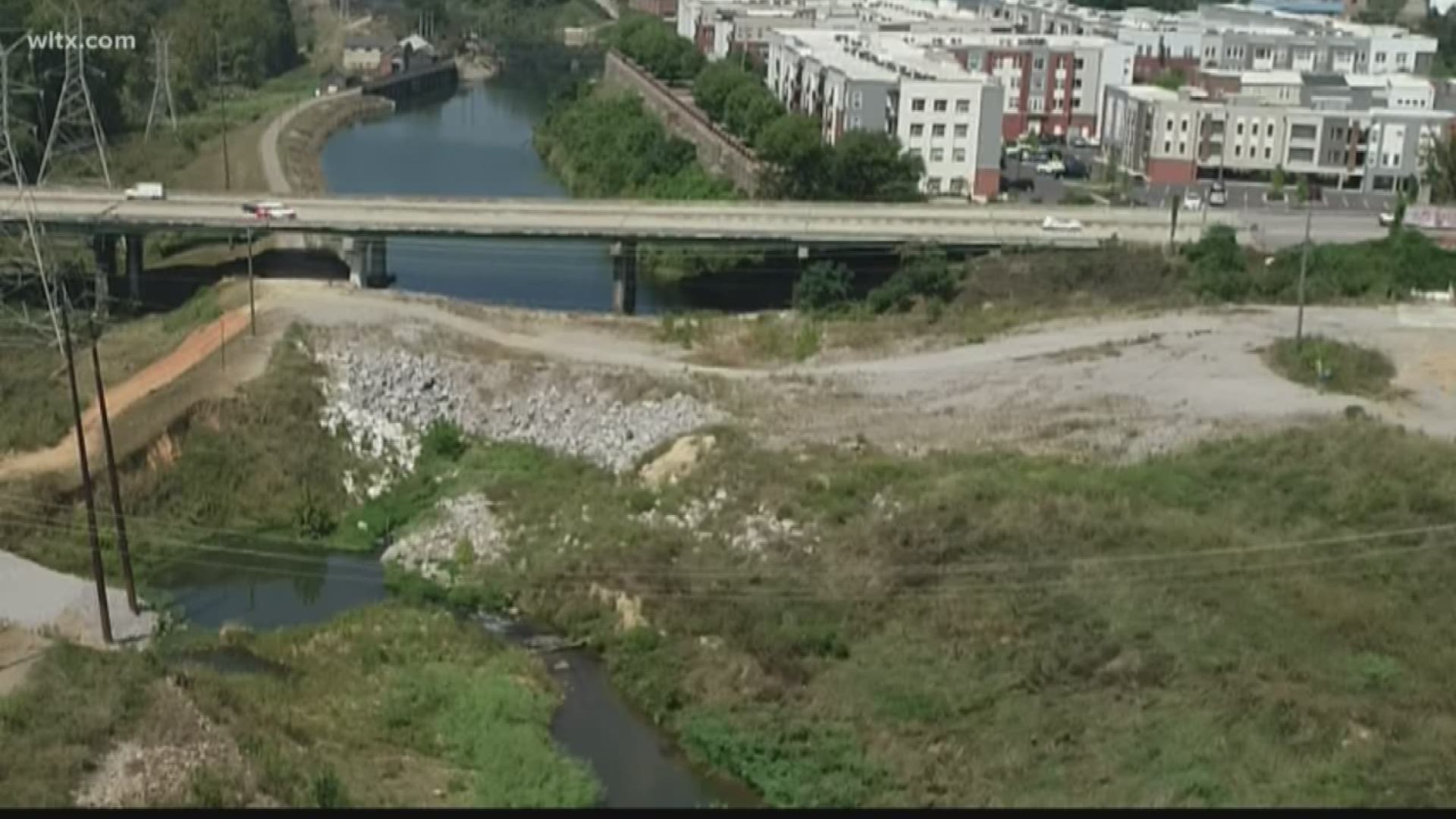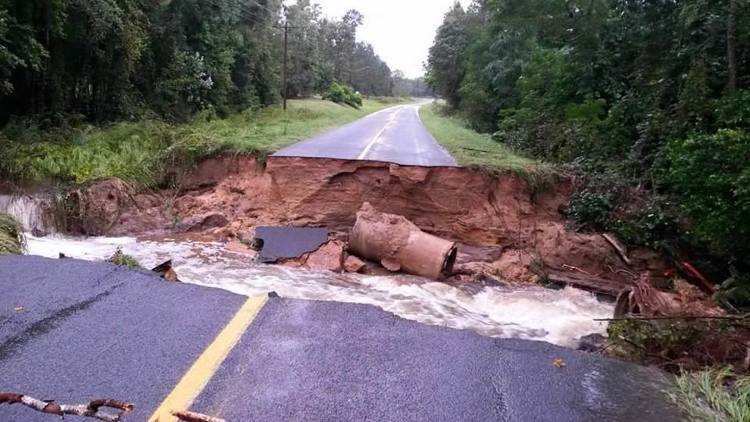COLUMBIA, S.C. — Four years have passed since historic flood waters destroyed the Columbia Canal, the main source of drinking water for the City of Columbia and Richland County.
The city estimates that $50 million in damage was done to the canal.
They believe they are closer, now than ever, a permanent fix.
"It's really frustrating for us,” says Clint Shealy, assistant city manager. “We should've been here three years ago, but we're finally here."
Shealy says since the breach to the Columbia Canal on October 4th, 2015, the plant has had to make significant changes.
A temporary rock wall was made to stop water from flowing out of the canal and possibly disrupting service to Columbia water customers.
The plant also had to lower the water levels along the canal by four and a half to five feet, as well as shut down the hydroelectric generator. The hydroelectric generator has been operational since the late 1800's.
RELATED: Gills Creek area still feeling impacts of 2015 floods, four years later
"We're still able to withdrawal all of the water that we need to meet our customer’s needs,” says Shealy. “So, we're not limited in that respect, but again it's not operating as intended."
The rock wall has been working for the past four years, but a permanent solution is expected soon. The city is still trying to secure the funding.
Mayor Steve Benjamin says FEMA should help pay for repairs.
"The canal was destroyed in a historic natural disaster,” says Mayor Steve Benjamin. “The purpose that FEMA was founded over 40 years ago was specifically for these situations. We're not asking for support from DC, but these are our tax dollars that we send to Washington DC every April 15th. In these special situations, we expect those dollars to be repatriated back to the tax payers."
Originally FEMA offered between $10-15 million in repairs.
However, that would've ultimately put the funding burden on rate payers, but after many conversations with FEMA in Washington D, that offer could be between $40-50 million.
"I know to a lot of our customers it looks like, we haven't done anything, what are they doing?” says Shealy. “We don't want them to see the difficult negotiations that we've been going through. But I want them to know that we've been fighting every day to protect the rights of our customers so that we don't have an undue burden placed on us. The wait has been worth it."
Once the money is finalized, it could take another couple years before the Columbia Canal is back to fully operational.



